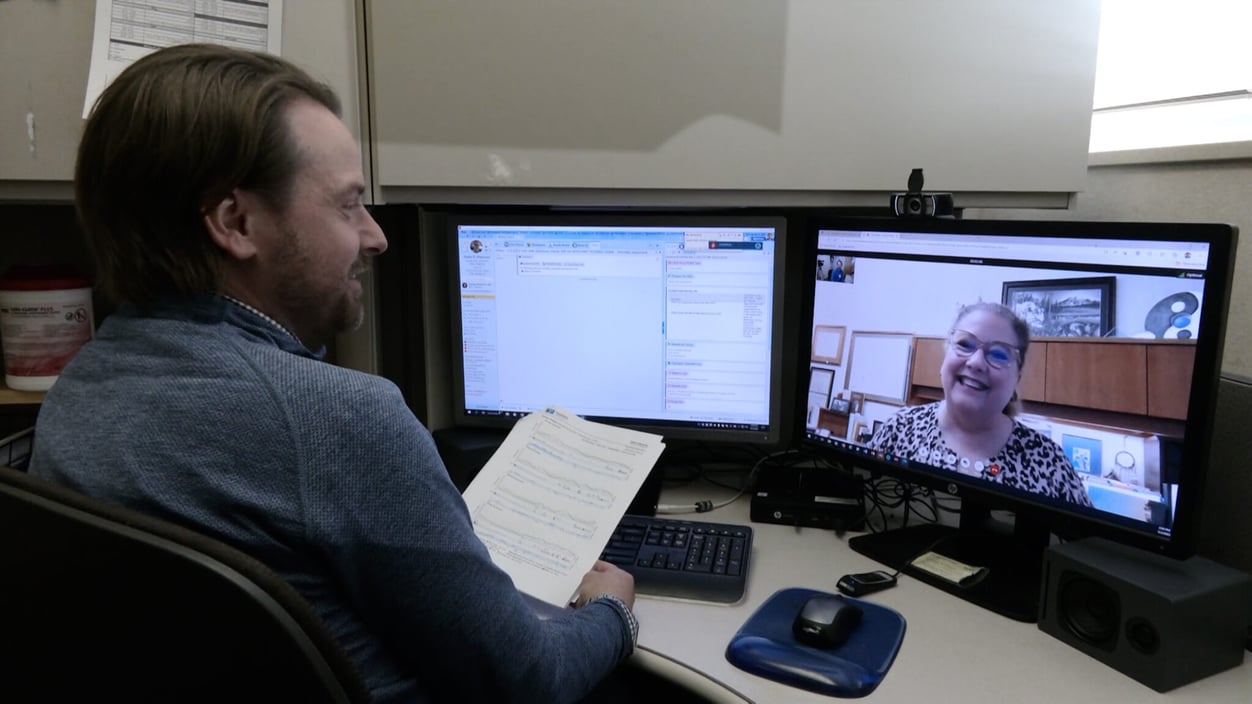closer look
Treating rural America: The telehealth solution

Hyacinth Empinado/STAT
There's a stark urban-rural divide in the U.S. when it comes to specialty care. "We know that urban patients typically do better based upon their ZIP code," said David Newman, an endocrinologist based in Fargo, N.D. "We don't want your care to be defined by your ZIP code. We want everyone to have equal access to specialty care."
Part three of STAT's short documentary series on rural health focuses on how Newman and his colleague, Johnna Nynas, are using technology to offset major obstacles to healthcare access in their region. Watch here for the latest from Hyacinth Empinado.
infectious disease
New antibiotic against gonorrhea stacks up well
Promising results from a Phase 3 trial are raising hopes for the first new treatment for gonorrhea in decades, a development that experts say cannot come too soon. "We're on borrowed time," Edward Hook, a professor emeritus at the University of Alabama at Birmingham who was protocol chair for the clinical trial, told STAT's Helen Branswell. The drug comes from the nonprofit Global Antibiotic Research & Development Partnership and Innoviva Specialty Therapeutics.
Since the advent of antibiotics, Neisseria gonorrhoeae has developed resistance to each class of antibiotics wielded against it, leaving ceftriaxone as the sole remaining drug that can reliably cure gonorrhea. But in the past few years, there have been mounting reports of cases of ceftriaxone-resistant gonorrhea. If it is not successfully treated, gonorrhea can cause pelvic inflammatory disease and infertility in women as well as sterility in men and blindness in babies infected during birth. Read more.
mental health
Brain function reflects the impact of adverse experience, study says
Adversity leaves its traces in the adult brain, a meta-analysis of 83 neuroimaging studies says, changing the way the brain reacts to a variety of challenges. Someone's ability to cope with later stressors could be lessened while their susceptibility to mental health problems could grow. The researchers found greater amygdala reactivity and diminished prefrontal cortex reactivity in response to four specific tasks: emotion processing, memory processing, inhibitory control, and reward processing.
These are regions of the brain that size up potential threats and set in motion defensive behaviors and physical coping. Changes in these brain responses were clearest in people who'd been exposed to severe threats and trauma. "These results might better identify how adversity diminishes the ability to cope with later stressors and produces enduring susceptibility to mental health problems," the study in JAMA Network Open notes.


No comments